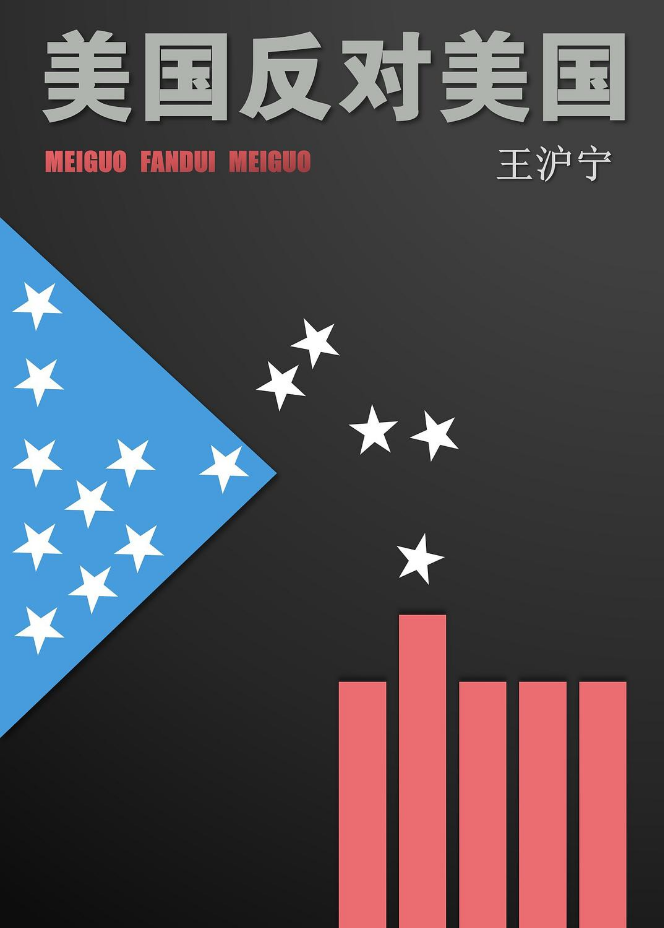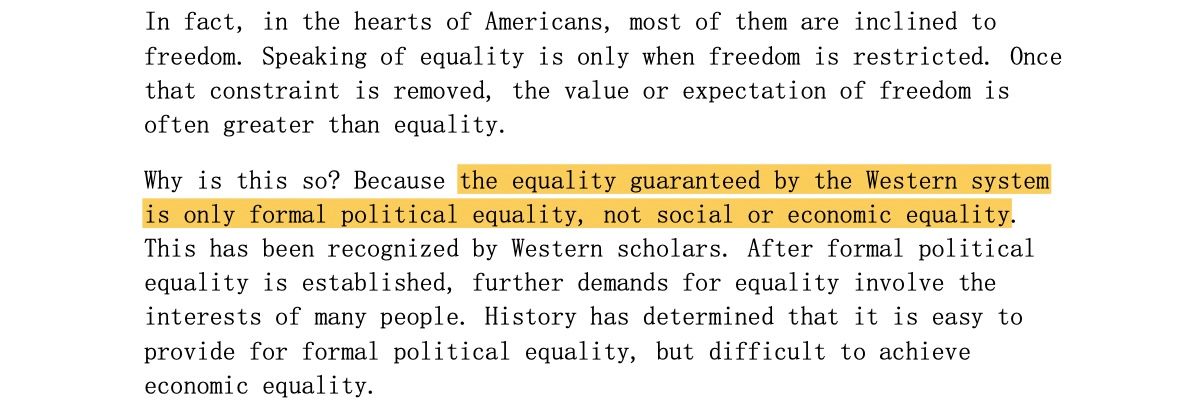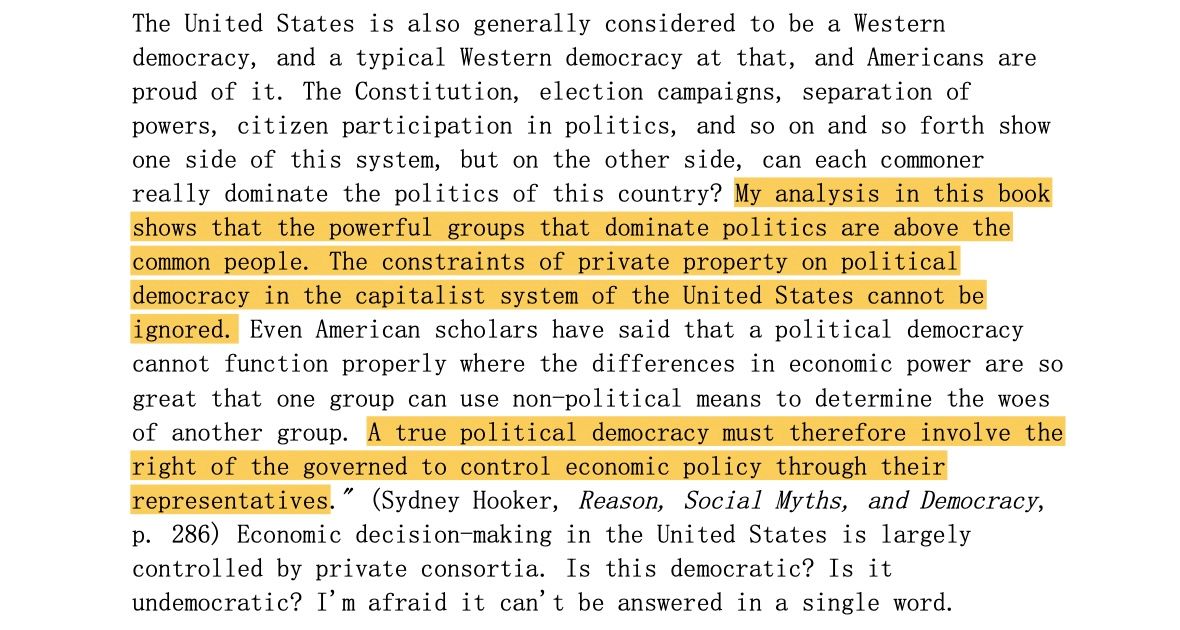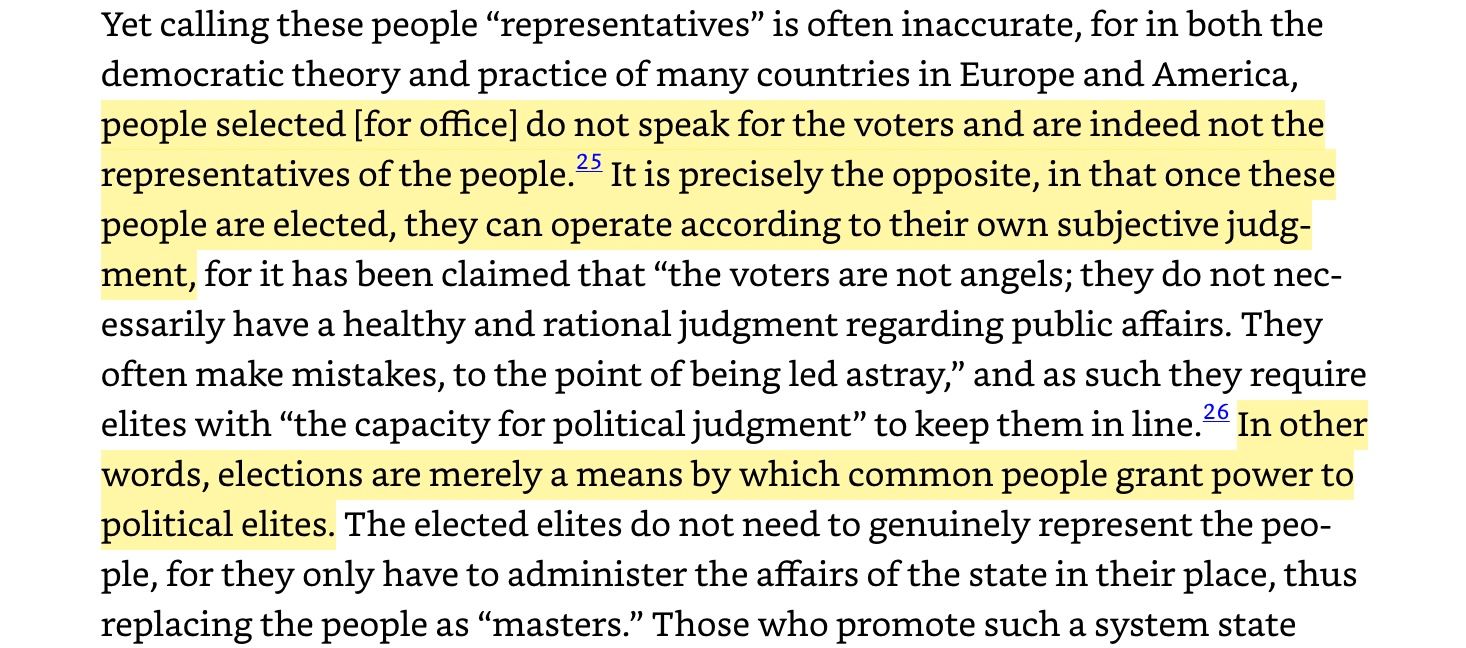Why American Democracy Sucks
Chinese Democracy Part II

This is a Part II. Part I is more general philosophy here.
I grew up thinking that democracy was A) a thing and B) a good thing. but none of this is true. Democracy is many things, none of them inherently good. The paradox is that because I grew up inside a liberal democracy, I was the last to know.
Growing up in Ohio, pledging allegiance to the flag, the idea of my own freedom was so tied to the illusion of democratic freedom that I couldn't question one without shattering the other. And I just didn't. I didn't even think of it. That's the problem with Western democracy.
America is so preoccupied with being a democracy that it's not becoming a democracy. And democracy is like a bicycle–if you're not moving forward, you're falling off. The problem is that Americans are so proud of being a democracy that they can't see that their democracy is actually shit. And so they make no attempts to fix it. And so it falls down.
The problem with American democracy is not the filibuster. It's their philosophy. Paradoxically, the best place to get a perspective on this is from China.
Wait, but China is the enemy!
"But China?" you might say, "the horror!" Hold on to your pearls. I won't try to explain the complexity of China because it's actually irrelevant. Let's start where you are. If you think China is your enemy, then that's the biggest reason to learn from them. As they say in Ender's Game, "There is no teacher but the enemy... Only the enemy shows you where you are weak. Only the enemy shows you where he is strong."
Chinese scholars are well positioned to show Americans where they are weak because A) they're outside America and B) they have a unique perspective. For example, this is Wang Huning, talking about Western democratic culture and its limitations:
The inner meaning of the modern structure is based in Western democratic culture, its ideas of natural rights, popular sovereignty, the social contract, and the separation of powers, as advocated by Locke, Montesquieu, Rousseau, Penn, Jefferson, and others. These ideas run contrary to the spirit of China’s classical structure, and there was a long and fierce battle between them.
It is clear that after nearly 150 years of back and forth, the existence of the modern structure is well established, and at least in terms of specific components, it has replaced the classical structure. We can see that the modern structure has its historical and geographical limitations, and, in terms of higher ideas, it also has more basic, philosophical limitations, which is related to its historical origins.
As you can see, China has elements of this democratic culture within, but it's mixed with Marxism and Confucianism. This is a unique and important perspective. So when Huning* talks about the basic, philosophical limitations of Western democracy, what does he mean?
The Conflict Between Freedom And Equality
First some background on who Wang Huning is, because he's not just a scholar. Huning is a member of the Standing Committee of the Politburo, one of the six men (they're all men) behind Xi Jingping. His Wikipedia page is a funny collection of him lurking in the background of important photos. Huning is often called the chief idealogue of the Communist Party, and his ideas are very surprising.
In 1991 he visited America and published America Against America, a rare and important work. On his travels, he identified the tension between freedom and equality as being a basic philosophical divide within America. As he writes,

Now this isn't just a Republican/Democrat divide. In Huning's view, the entire American heart is skewed towards political freedom over general equality.

And here we get to the core philosophical problem. The fatal flaw at the heart of American democracy. You cannot separate political and economic equality. Rich people will just completely fuck over the poor, even though they technically have the same rights. Democracy becomes a formality, a gilded cage.
For example, an American person has freedom of speech, but American corporations have the same right, multiplied by millions of dollars. And so they flood the zone with shit. Americans can call their congressperson, but a rich person can buy them outright. And so the rich get richer. As Huning says, "the powerful groups that dominate politics are above the common people."

American democracy is not free, it's freemium, and the paid service is much, much better. Is this freedom? Is this democracy? As Huning says, "paradoxes like this abound."
The reason this flaw is fatal is because it's also inside the American heart. There's a real sense that freedom is the freedom to do whatever the fuck you want. Rich people running wild is not a sign of failure of American democracy, it's a sign of success. "In fact economic inequality is conceived as equality," says Huning.
Almost every American thinks they're going to be rich someday, and they act accordingly. Too many Americans would rather die clutching a capitalist lottery ticket than live under socialism. This is why they can't have nice things.
The Gilded Cage
American life expectancy was going down even before COVID, unique among most countries. They don't have universal healthcare, they have rising deaths of despair, they let their own children get gunned down in school. During that pandemic, the American government has just let nearly a million people die. Their representatives rep their own stock portfolios more than anything else. Whatever governing they're doing, whatever they call it, it doesn't work.
A very important perspective on that comes from Wang Shaoguang, a US-educated political scientist who teaches in Hong Kong. His thesis is that America has descended into an 'Electocracy', where they can vote but remain fundamentally fucked. I call it 'Electile Dysfunction' and I think it's true. In his essay 'Representative and Representational Democracy' Shoaguang lays down an interesting philosophical line which I will summarize as does it fucking work?

Shaoguang would say America is a formal democracy which doesn't address substantive concerns. For example, the Black Lives Matters protests were the largest in American history, and what did they accomplish? They got a holiday and repainted some roads. These are purely formal actions, not substantive change. Not results.
Again, even if you consider Shaoguang an enemy propagandist, your enemy is your best teacher. He's worth a listen. As Shaoguang says,

I'll get into Shaoguang's descriptions of China in the next article. For now we'll focus on his incisive and critical view of America. Shaoguang echoes many of the criticisms of ancient Greeks like Aristotle, who would have found representative democracy laughable. No Athenian citizen needed 'representation', they had real power. He (they were all men) was eligible to attend 'Parliament' himself and they divided major roles by lot. The original idea of democracy was power to the people, not delegated to elites.
Westerners act like representative democracy is democracy but it's just one form, and one regarded by Aristotle as trending towards oligarchy. And look around. He was wrong about a lot of shit, but on this he was right. Where I live now in Sri Lanka, democracy has reproduced feudalism. Where I lived in America, it has reproduced oligarchy. Whatever this is, it ain't power. It ain't what it's supposed to be. You get to choose who fucks you, but you're still fucked.

As Shaoguang says, "elections are merely a means by which common people grant power to political elites." Look at the old-ass people whose only job has been politics, look at their sons who take it up as a birthright, look at the rich people who just buy power. These are just the formal motions of democracy, it's democracy by numbers ($$$). It doesn't add up.
So What?
The point here is not to be China. China has its own set of problems. As Shaoguang says, "It is foolish to blindly follow in others’ footsteps without deep and careful reflection." The point is that liberal democracies need to look at their own reflection, even if it's in enemy eyes.
There's this idea that liberal democracy can be preserved or defended, and this is wholly inadequate. You can't just change some settings on this thing. The whole governing philosophy is fucked up at a very fundamental level. It needs serious discussion and reform.
Do I think Americans are ready for that? No. Are you ready to admit that you suck? It's very hard. You really have to hit rock bottom, like China did during the Cultural Revolution. Huning has a whole essay repudiating that orgy of destruction. In that he says,
"The ruling party that constitutes the core leadership of our political life does not have a healthy internal democratic system," and
"The overall goal of China's political system reform is to follow the world trend of constitutionalism and establish a constitutional democracy."
Can you imagine Nancy Pelosi saying "the overall goal of America's political system is to follow the world trend of socialism"? And yet that is precisely what America needs. As American socialist Eugene Debs said 100 years ago, "socialism is merely an extension of the ideal of democracy into the economic field." This is still the core contradiction of American democracy, a century later. And now it seems only further from being resolved.
I grew up inside American democracy and now I've grown out of it. I grew up at the end of history and now I realize there's so much more work to do. I don't know what the answer is, but it starts with rejecting what Margaret Thatcher said more than 500 times, that "There Is No Alternative" (TINA). There must be. There has to be. And we need a lot more philosophizing to find out.
That's what we'll discuss next, in Part III. Democratic reform.
*I'm using first names to refer to the two writers here because their surnames are both Wang. I would normally use the last name but what can I do.
FURTHER READING
- Wang Huning, America Against America - this is impossible to find in print and I don't even know the provenance of this bootleg PDF.
- Wang Huning, The Structure of China’s Changing Political Culture - (1988, I think).
- Wang Huning, The Cultural Revolution and Reform of China's Political System - (1986, revised in 2012).
- Wang Shaoguang, Representative and Representational Democracy - (2014, I think).